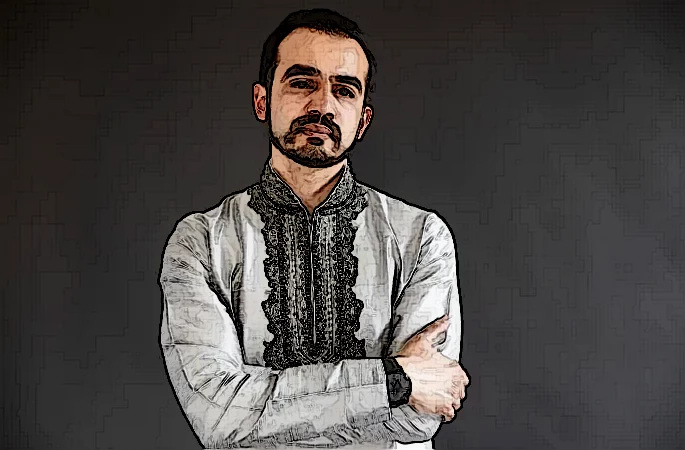So, what is it like to live in one of the greatest democracies in the World? My answer: It is great. The streamlined nature and structure on the economic and societal front, the growth in jobs, the progress and advancements in Science and Technology, being a mighty Military Nation, and a compelling future for kids’ education and job opportunities are all great.
But there is one problem: a big problem, in fact. So, where is the discord? The lack of inclusivity and diversity and the all-prevalent prejudice at some companies here (I’ve been a part of the American workforce for some years now) with some people getting promoted faster and acquiring important positions–owing to superiority through the “colour of their skin” or “affiliation”– is all-rampant. Islamophobia is rampant. A lot of work needs to be done along the lines of not letting law enforcement racially profile people here in the U.S. In some cases, it seems as though racial profiling, racial prejudice, and racial discrimination are the very operational principles of Law enforcement agencies. Sad, isn’t it? And yet, it is true. Ask any brown man with a beard, and you’ll find the statement true. And we are ordinary, everyday people: doctors, college Professors, family men, college students, businesspeople, etc. The scenario is worse for women (of any race, including the majority of whites), as evidenced by the dismal representation of women in upper managerial and leadership roles. And to make matters worse, the situation isn’t getting any better year after year.
And there’s something else that’s taking a hit somehow. The immigrant experiences! Understandably, times are tough these days for all working-class American families. The pandemic has wreaked havoc on businesses, the growth in jobs has been slow, and career opportunities have been slower. And add to that the current hike in inflation and a gross National base pay standing at only 7 odd dollars, and life has been tough, to say the least. And for some reason, immigrants–in some cases–have to bear the brunt of “hatred” like the one I’ll get to soon. So, I was at this store picking up groceries in Pennsylvania, USA, where I live, and I noticed that “a middle-aged Caucasian male” had been staring at me very angrily and for a long time, and for no apparent reason at all. (So, a little about the way I look: I am a brown man, and I have a beard, and most people think I’m a Muslim or Arab, while I’m actually a Hindu man from Nepal. Nepal is a small country close to India and China. And we have grown in a multi-cultural environment. I grew up with many Muslim friends and even went to some Muslims in my Medical school in Nepal) Typically, in American culture, we don’t stare at people for long. So, it felt awkward. One, an unknown stranger was hurling “racial slurs” at me and “raising hands (in a punching manner) up in the air”.
Moreover, his fists were clenched, and he looked “combative”. He was also explaining something to another Caucasian man and throwing “racial slurs” and “hate remarks” at me. He looked to be in a “ready to fight” mode. And it was a public place! I didn’t respond or say anything–coming from a Nepali culture where we respect our elders–and I respected that elderly individual even though he was clearly being “very rude and mean” to me. And yet, it wasn’t anything new. I’ve experienced similar incidents at the workplace when “some co-worker just gets away with intimidating and harassing people simply because they belong to the “majority whites” or “are of the privileged lot, “white supremacy! “!”.
As a sane and rational individual, I did what most cultured people do: I reported the incident to the store manager. But she mentioned that “it wasn’t related to her employees and their behaviours, meaning the employees weren’t at fault, and she thus wished to “brush the matter aside””. Appalling! But I reasoned that I was a “non-white person and a person of colour” and because the racial remarks were hurled at me by the White customer owing to the “colour of my skin, or the race he presumed me to be (it was clearly a case of “racially motivated hatred and Islamophobia”), I felt unsafe at her store. One needs to add here that the majority of the store’s customers are evidently white, and the individual who harassed me was white too, and not to forget the Caucasian race is a majority race in the entire Nation or the U.S.! Still no response from her!
And I asked further what she would do to ensure that “people like me felt safe there”. No reply!
Amid all this, a question ran in my mind. “Who are the people who hate immigrants in majority of cases?” Are they the less-educated bunch–which most people reason–or is “racism and racially motivated hatred” prevalent in the educated communities too? Do struggling–economically–Americans blame all the current problems on immigrants? Do they? The question begs for an answer.
So, here’s the deal. As a would-be medical man, I’m committed to–and happily so–saving American lives, yet there are moments when I fear for my own safety because of the above reasons. Also, the random acts of hate crimes are “all-rampant”, unfortunately.
But having lived in America for almost a decade now, I have the answer as to why the White Manager didn’t–and wouldn’t– take the event seriously and do anything to avert such incidents in the future.
Here’s my reasoning:
I don’t think the manager–who herself was of Caucasian race–will investigate the case, check on the store’s cc cameras, and run an investigation or do anything to prevent such racist individuals or bar them from either behaving thus. I don’t think the store manager, likewise, will completely ban such individuals altogether from entering that store, thus enforcing a zero-tolerance policy for “racism and hate crimes”. Zero tolerance policy for racism! A wishful thinking! That’s what it turned out to be! Or so we will learn soon. Why? Because I’ve lived here long enough to know that for a fact. And sure enough, a few days later, I noticed that a cop vehicle–and the white cop who was driving it–would chase me around the small town in Pennsylvania where I live, and they would chase me around when I took my daughter to her school, or to ice-cream shops nearby. Yes, the cop vehicle would follow me for many days after the abovesaid incident. I knew the “writing on the wall.” “White supremacy” is a real thing. While in theory, we say that we don’t “tolerate racism”, in actuality or practice, “it’s a white man’s world”, and we don’t speak up or speak out against the “atrocities of white men”. And it’s one thing to have that “oddball (I meant the older white gentleman earlier)” display racism, and it’s another to have “law enforcement” display their “racism and bias” unabashedly. We have created “departments of police terrorism” whose operational principles are based on “racial discrimination”, “racial profiling”, and “racial bias”.
So, life moves on, and things stay the same, not for good reason. Unfortunately! Of course, my little take on the U.S. immigrant life isn’t a representation of the entire U.S. people. Why? Because I also notice that a proactive stance on inclusivity and diversity is enforced especially from the important leaders in the U.S. government, and it is generally safe to live here as an immigrant. We can, for example, report “all incidents of hate crime” to the “concerned authorities” like the “Law Enforcement Agencies”.
Moreover, the younger generation welcomes people from all over the World. People of all races, colours, and religions live and work together- at private and government institutions, colleges, and virtually everywhere. That’s a good thing for society as a whole. And let’s hope it only gets better to that end.



